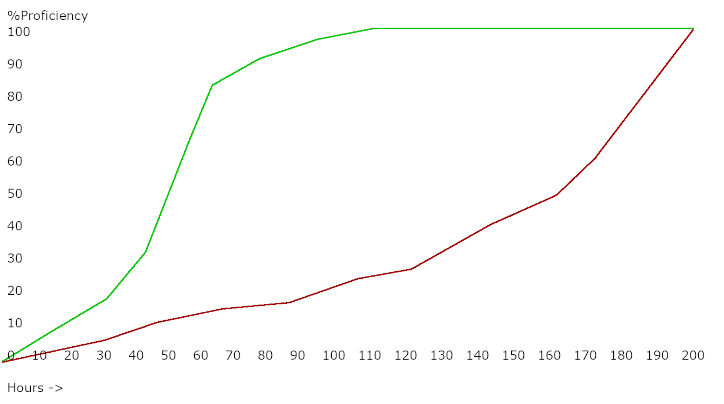This is an English phrase that has long bothered me. It makes me wonder if it’s another of those things that so many people got it wrong, that by popular usage, the wrong understanding became the most-accepted way to say it. E.g. “I could care less.”
When someone says that something has “a steep learning curve,” I thing we pretty much unanimously understand that they mean it will be difficult to become proficient. Much effort over many, many hours (or days, or years) to attain expert proficiency.
But look at the graph I’ve provided at the top of this post. It is clear that the green line is the steeper of the two. Yet that imaginary skill was mastered in about half of the time of the other. The red line starts shallower, does become steeper at some point later, but the steepest part of that curve is still not as steep as the green line. Yet this imaginary red skill wasn’t mastered until 200 hours of effort, at the far upper-right corner of the graph. More effort. Took longer. But it’s a shallower learning curve.
What are your thoughts? Why do we say it like this?

For what it’s worth, I tend to catch myself before uttering the illogical phrase, and instead say “long learning curve” with drawn out emphasis on “long”. Everybody understands what I mean, and I haven’t said anything incorrect.